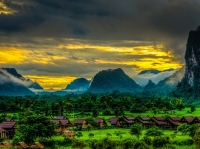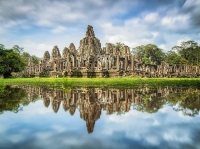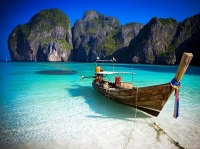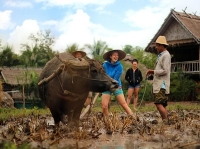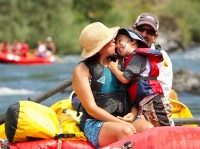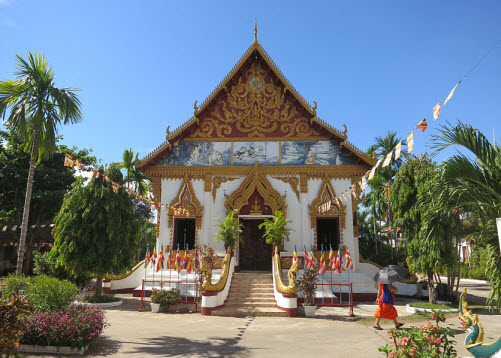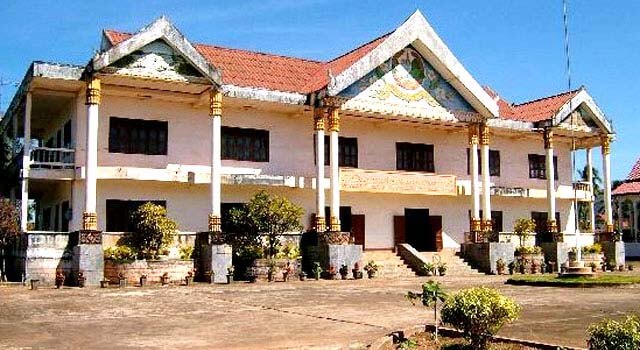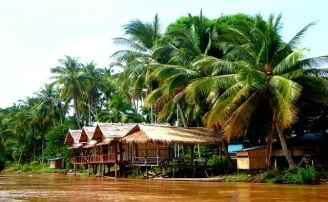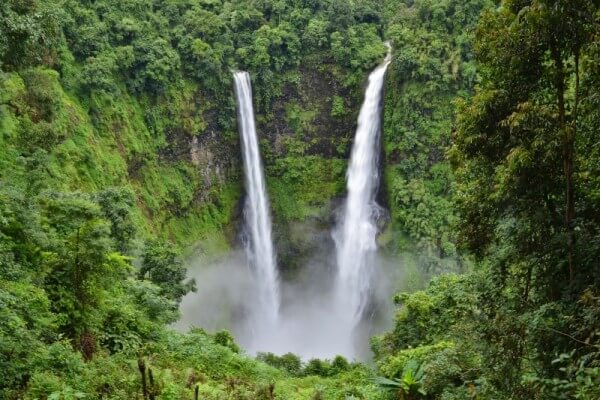1. Tasting coffee in Bolaven Plateau
The Bolaven Plateau or Phu Phieng Bolaven is situated in an old volcano erupting millions of years ago. The plateau is famous for its high quality coffee and known as one of best coffee growing areas in the world. What makes the upland special is Arabica bean – one of the world’s most delicious coffee beans. It is estimated that nearly all of Laos’ coffee production is provided by Bolaven plateau. More of trying fresh coffee, visitors can view a large number of beautiful scenes in the region. Because here is home to tribal villages, protected national parks, dramatic waterfalls, remote mountains and dense forests.
2. Contemplating relics at Wat Luang
Wat Luang built in 2478 B.E is the largest and most beautiful temple of Pakse. The wat includes relics of several important people of Laos like Mr.Kratai Donesalid - the former Prime Minister of Laos. It plays a role as not only a wat but also school of monks. It is very easy to meet Lao monks with typical Orange tunic in the surrounding area. Another attraction is Ubosot used as library and office. The old building is designed with best wood carving on doors, windows and sophisticated stuccoes on the roof. Moreover, visitors are able to view Sedone River and bridge from this temple.
3. Exploring local history at Champasak Provincial Museum
The museum is located on the main road leading out of the city, Highway 13. The upper floor shows the more recent history of Champasak such as different ethnic clothing, Champa of bronze, jewelry, and textiles. The first displays a large number of artifacts, documents and photographs related to pre-history of the province. There are a large number of photos of cultural events, foreign meetings, musical instruments, ancient pottery, inscribed stelae in the Tham script from the 15th to 18th centuries, a water jar from the 11th or 12th century, sandstone architectures from the ancient Khmer temple Uo Moung. Another highlight of the museum is a model of Wat Phu.
4. Experiencing a homestay in Ban Saphai Village
Ban Saphai is situated on Don Kho, a small island in the Mekong River. The high spot of this village is houses are built in traditional Lao style and all on stilts. Beneath the house is a cool space for members in the family to weave fabric by hand and spin thread when they are not busy at cultivating local crops of corn, watermelon and rice. Besides, visitors have opportunity to attend Lao-style fishing trips and lessons in silk weaving organized by local people. Textiles of villagers sold at the cheap price are considered as best souvenirs in the Mekong-hugging village.
5. Visiting Tad Fane Waterfall
Tad Fane is the twin falls in the jungle of Dong Hua Sao known as a National Biodiversity Conservation area. Beside discovering the twin Tad Fane waterfall, traverlers can meet several wild animals in the scenic rainforest such as elusive leopards, extremely rare tigers, elephants and monkeys. It is estimated that there are 300 bird species in this region including hornbills – one of the most impressive birds. One convenient thing is that half-day or full-day treks to the top of the falls with local people is always available for visitor to book.

